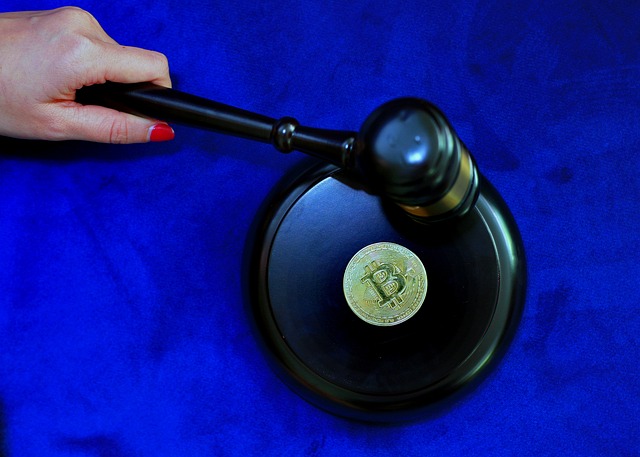Consumer protection laws guard individual rights during business transactions, covering product quality, pricing transparency, fair advertising, and privacy. These regulations are crucial for both consumers and businesses to navigate legal scenarios involving corporate misconduct or criminal defense strategies. Search and Seizure Rights in Criminal Law play a vital role in protecting privacy and possessions for businesses and individuals, balancing public safety with individual privacy. Legal recourse, including these rights, serves as a shield for consumer rights, facilitating justice, deterring unethical behavior, and fostering trust.
“Unraveling Consumer Protection Suits: A Comprehensive Guide offers an in-depth look at the legal landscape safeguarding consumer rights. This article explores the intricacies of consumer protection laws, shedding light on scenarios triggering lawsuits. We delve into the crucial aspect of search and seizure rights within criminal law as they pertain to consumers’ protections. Additionally, it examines the available legal remedies and provides a roadmap for understanding the complex web of consumer advocacy.”
- Understanding Consumer Protection Laws
- Consumer Protection Suits: When and Why They Arise
- Search and Seizure Rights in Criminal Law for Consumers
- Protecting Consumers: Legal Recourse and Remedies
Understanding Consumer Protection Laws

Consumer protection laws are a vital component of modern legal systems, designed to safeguard the rights of individuals when interacting with businesses and corporations. These laws cover various aspects of consumer interactions, from product quality and pricing transparency to fair advertising practices and privacy protections. Understanding these regulations is crucial for both consumers and businesses alike, as it ensures equitable transactions and discourages deceptive or harmful business practices.
In the context of high-stakes cases, especially those involving corporate misconduct, a solid grasp of consumer protection laws can be instrumental in securing justice. The rights enshrined in these laws extend beyond individual consumers; they are relevant for general criminal defense strategies as well. In fact, many corporate and individual clients find themselves navigating complex legal landscapes where protecting their interests requires a deep understanding of not just general criminal defense principles, but also the specific protections offered by consumer protection statutes. This knowledge can help mitigate risks, resolve disputes amicably, or fortify defenses in court, ensuring fair outcomes for all parties involved.
Consumer Protection Suits: When and Why They Arise

Consumer Protection Suits arise when businesses engage in practices that violate consumer rights and regulations designed to safeguard them. These suits are often initiated when a company misleads consumers, sells defective products, or fails to disclose material information during the sales process. Such actions not only harm individual consumers but also undermine fair market competition, prompting regulatory bodies and aggrieved parties to take legal action.
These cases typically emerge at various stages of the investigative and enforcement process, from initial complaints by affected consumers to formal investigations launched by government agencies. Over time, these suits have developed an unprecedented track record in holding businesses accountable for their actions, ensuring that they uphold the highest standards of ethical conduct and transparency. This is particularly significant in light of Search and Seizure Rights in Criminal Law, which, while focused on criminal proceedings, underscores the importance of legal protections for both businesses and consumers alike. Moreover, a solid general criminal defense strategy can be instrumental in navigating these complex cases, ensuring that all parties involved are protected throughout the process.
Search and Seizure Rights in Criminal Law for Consumers

In criminal law, Search and Seizure Rights play a critical role in protecting both corporate and individual clients from unlawful intrusion into their privacy and possessions. These rights are designed to ensure that law enforcement agencies have valid reasons and legal authority before conducting searches, which is particularly relevant in high-stakes cases involving significant financial or reputational consequences. The Fourth Amendment of the U.S. Constitution establishes guidelines for reasonable searches and seizures, balancing public safety interests against an individual’s right to privacy.
For his clients, understanding these rights is essential when facing potential criminal investigations. Lawyers representing corporate and individual clients in such situations must be adept at navigating complex legal principles surrounding search and seizure procedures. Proper handling of these issues can significantly impact the outcome of a case, ensuring that rights are protected and evidence is gathered lawfully.
Protecting Consumers: Legal Recourse and Remedies

In the realm of consumer protection, legal recourse is a powerful tool to safeguard rights and ensure businesses uphold their responsibilities. When consumers face unfair or fraudulent practices, they have the right to take action and seek remedies through the justice system. This process involves a comprehensive understanding of both civil and criminal laws, including Search and Seizure Rights in Criminal Law, which play a crucial role in gathering evidence for such cases. By invoking these legal mechanisms, individuals and corporate clients alike can hold businesses accountable, achieving extraordinary results in protecting their interests.
The remedies available to consumers vary based on the nature of the violation, but they often include damages or compensation for financial losses, injunctions to stop harmful activities, and even criminal charges against those who engage in fraudulent behavior. These legal actions not only provide a sense of justice for affected clients but also serve as deterrents, shaping the respective business practices to uphold ethical standards.
Consumer protection suits play a vital role in ensuring businesses uphold their responsibilities, providing legal recourse for individuals affected by unethical practices. By understanding consumer protection laws and knowing when to pursue legal action, consumers can protect themselves and hold companies accountable. Furthermore, recognizing the importance of Search and Seizure Rights in Criminal Law empowers individuals to navigate potential legal complexities effectively. In summary, staying informed about these rights and remedies is crucial for fostering a fair market environment.






